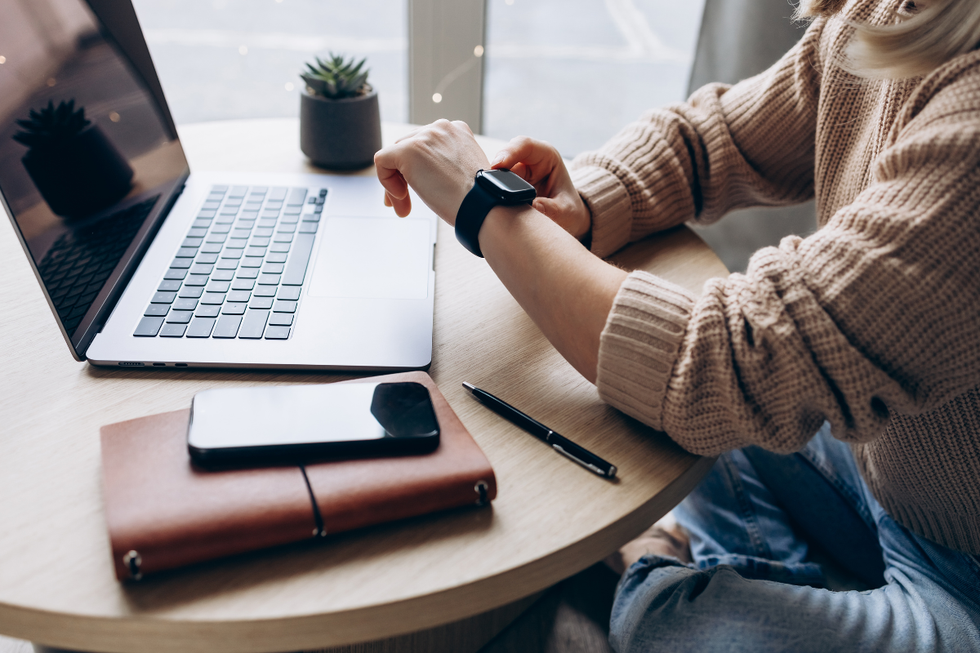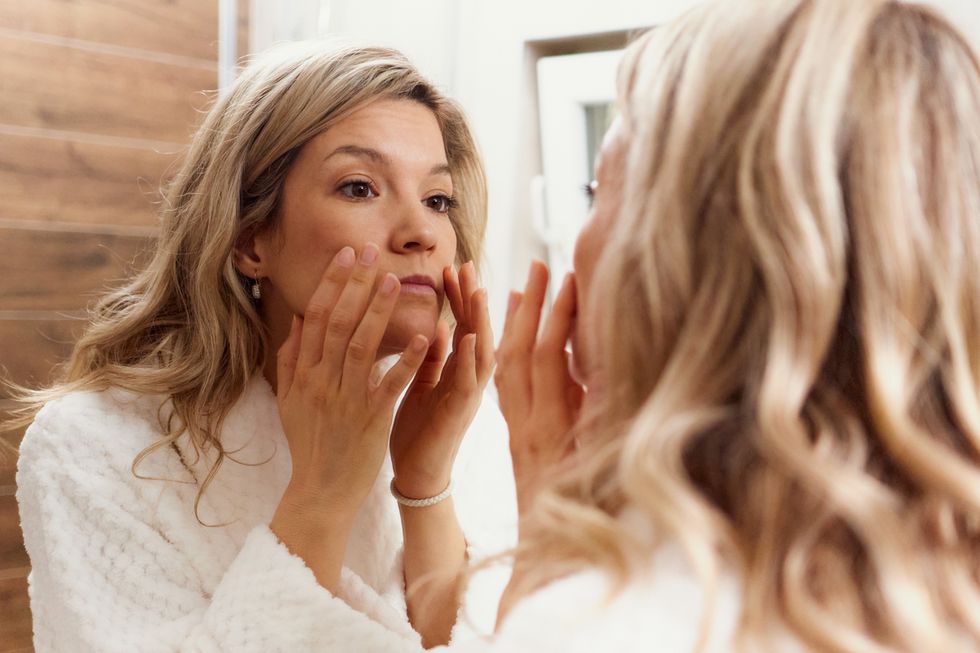How to look younger: Could checking the time age you? Expert shares surprising anti-ageing hack to deter crow’s feet
Britons are estimated to check the time up to 150 times every day
Don't Miss
Most Read
As one of the most delicate organs of the human body, the simplest, seemingly harmless habits could be prematurely ageing your skin - and you might not even know it.
Even activities like checking the time could spike skin stress, adding years to your complexion where it is undue.
Danny Toffel, who is CEO of Watches2U, has warned that a simple smartwatch habit of checking the time by peering at the little screen could be quietly deepening fine lines, crow’s feet and other signs of ageing.
**ARE YOU READING THIS ON OUR APP? DOWNLOAD NOW FOR THE BEST GB NEWS EXPERIENCE**

Blue light can accelerate ageing, according to the latest studies
|GETTY
“Every time you squint at your phone or smartwatch, especially in bright light or sunshine, you’re engaging the muscles around your eyes,” he explained.
“Repeating that micro-movement over and over again can eventually lead to deeper expression lines and crow’s feet.”
What’s more, blue light that is emitted from electronic screens has been found to contribute to premature skin ageing.
In fact, blue light (which is also referred to as high-energy visible light) has been found to penetrate the skin more deeply than UVB rays - the harmful UV rays behind sunburn.
LATEST SKIN CARE TIPS
This light, in addition to indoor light, has been found to “accelerate the ageing process and produce cutaneous hyperpigmentation” via oxidative stress and inflammation, according to a 2023 review published in the Journal of Cosmetic Dermatology.
Meanwhile, further studies into the long-term exposure to such light can damage collagen, as well as produce an uneven skin tone and promote cellular ageing.
The light does this by generating a reactive oxygen species similar to that of sun damage, although it fails to give any visible warning.
“It’s easy to forget that the screens we stare at all day are still emitting light energy,” Mr Toffel added.

A simple switch for an analogue clock could make a world of difference
|GETTY
“Phones and smartwatches might not give you sunburn, but they can contribute to long-term skin damage, especially around the delicate eye area.”
Britons, on average, check their phone up to 150 times a day. “Every glance at your screen is another small strain on your eyes and your skin,” Mr Toffel added. “Over time, that adds up - and it shows.”
Instead, he advised wearing - and checking - a traditional wristwatch. It “doesn’t emit blue light, doesn’t make you squint, and doesn’t pull you into your notifications when you only needed to check the time,” the expert said.
“It’s a small switch that can make a big difference to your skin - and your focus.”











